The CODESYS documentation says
The result of the difference between two pointers is of type DWORD, even on 64-bit platforms, when the pointers are 64-bit pointers.
From this, I guessed that pointers in codesys are 32-bit on x86 platforms, and 64-bit on x64 platforms. Is this true?
I tried running CODESYS_Control_Win_V3 and CODESYS_Control_Win_V3 x64 in simulation mode (CODESYS 3.5 SP16) and in both cases the pointers were 64-bit, but I don't have a real x84 PLC (only x64) so I can't verify this on a real device. Could somebody with an x86 PLC test this and give me their results?
EDIT: Strangely enough, I have 2 separate projects open, and in both I tried ptr := ptr + {some DINT variable};, and on one I get the warning Implicit conversion from signed Type 'DINT' to unsigned Type 'LWORD' while on the other one I get Implicit conversion from signed Type 'DINT' to unsigned Type 'DWORD':
EDIT2: I tried this in a test project:
p: POINTER TO STRING := ADR(str);
pp: POINTER TO POINTER TO STRING := ADR(p);
sizep: DINT := SIZEOF(p); // evaluates to 8
sizepp: DINT := SIZEOF(pp); // evaluates to 8
Does that mean they are always 8 bytes?

